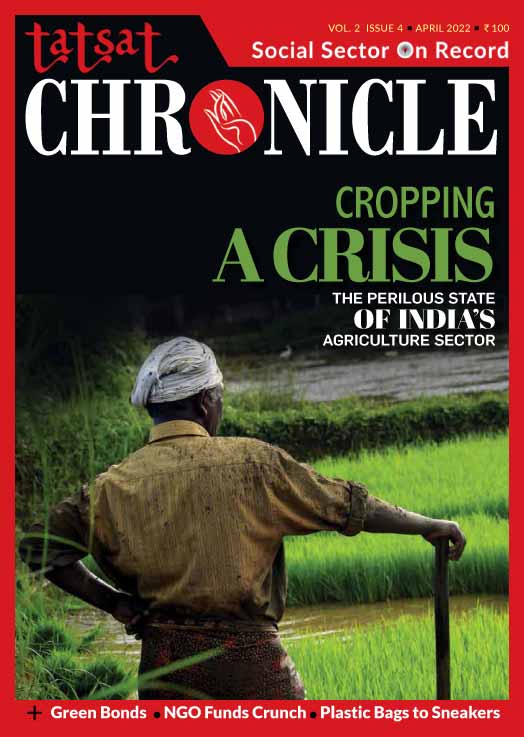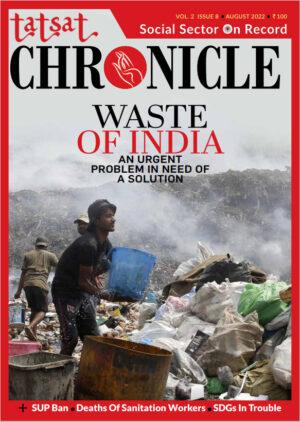Download Magazine
April 2022
₹100.00
CROPPING A CRISIS
THE PERILOUS STATE OF INDIA’S AGRICULTURE SECTOR
The agitating farmers have gone home, the government has withdrawn the three contentious laws that it passed in September, but the crisis that India’s agriculture sector has been facing for decades continues to persist as India’s ranking slips to 101 out of 116 countries in the latest Global Hunger Index. Today, farming is no longer economically viable as input costs keep rising. One of the key issues that the 378-day agitation by the tillers highlighted was ensuring remunerative prices for agricultural produce by making the Minimum Support Price (MSP) mechanism legally binding.
The majority of states in India have abolished the Agricultural Produce Market Committee (APMC), which managed the grain mandis, resulting in exposing the farmers to unscrupulous traders who buy the produce at well below the MSP. Even the prevalent MSP that is declared annually by the Commission for Agricultural Costs and Prices (CACP) does not offer remunerative prices to farmers, who have been demanding the implementation of the C2+50% formula suggested by the Swaminathan Commission a decade and a half ago. Meanwhile, an increasingly large number of farmers are dying by suicide due to the sweeping economic distress in India’s countryside. In this month’s cover story, we have taken a critical look at the complex issues plaguing India’s agriculture sector, which provides the maximum employment.
Another critical issue is India’s commitment to achieve the net zero carbon emissions target by 2070, which was made by Prime Minister Narendra Modi at COP26 in Glasgow last November. For achieving the ambitious target, India must invest massively in non-fossil fuel-based energy sources. The government seems to be moving in this direction by declaring that it will issue sovereign green bonds to finance green-energy infrastructure. We have taken a deep dive to understand how this will help India in energy transition. But energy transition does not necessarily equate with securing the basic rights of people nor does it reduce dependency on authoritarian regimes, as we have highlighted in our commentary section.
Related products
-
Nov 2022
₹100.00 -
July 2022
₹100.00 -
August 2021
₹100.00 -
August 2022
₹100.00


























